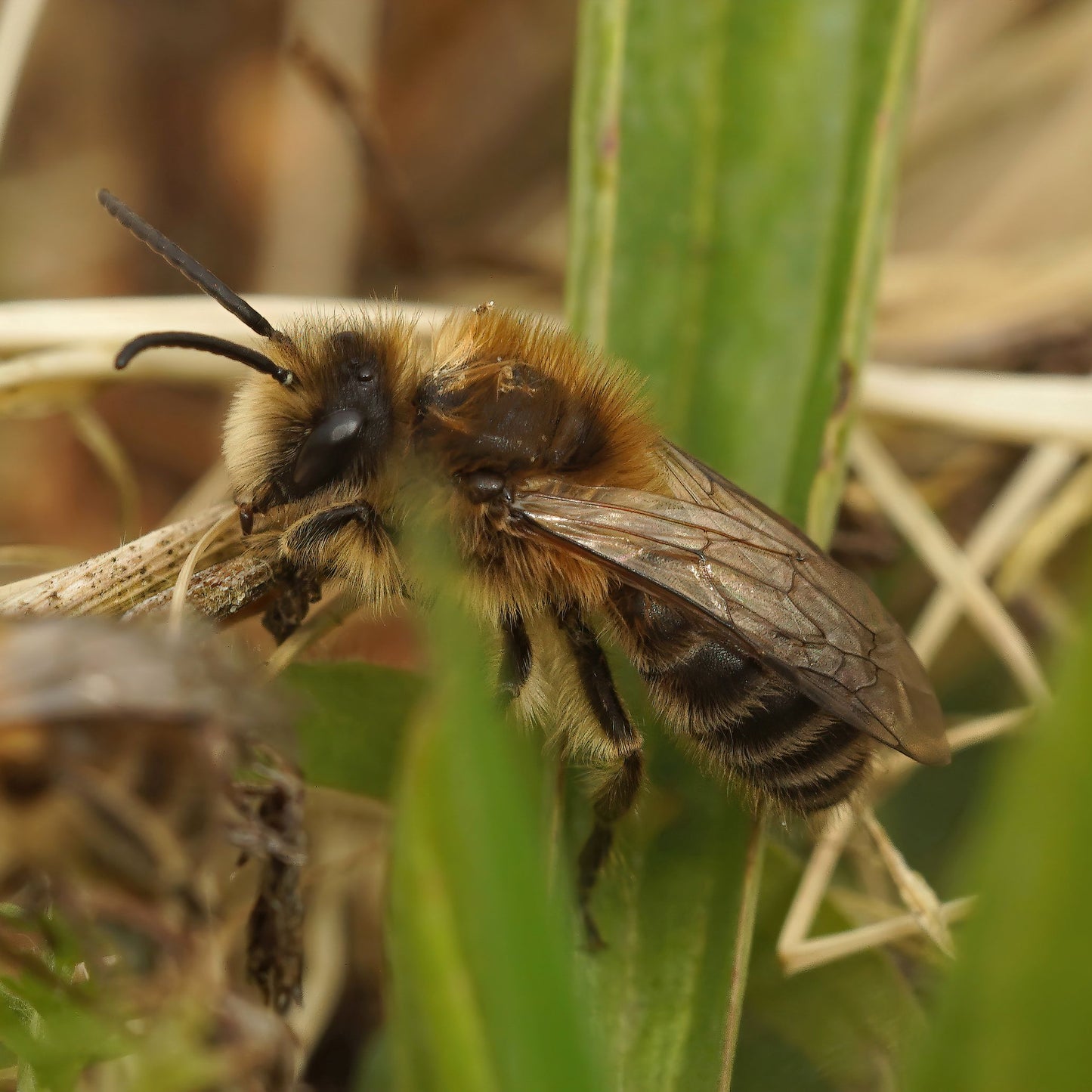
April 4, 2023
Spring is here, and with it comes the urge to clean up our gardens and remove all the dead plant material from the previous year. However, it is important to resist this urge, at least for a little while longer, and leave some of the debris in place to protect the pollinators that have taken refuge there for the winter!
Many pollinators, including bees, butterflies, and other insects, spend the winter in dead leaves, plant stems, and other debris in our gardens. More than 70% of bee species nest in the ground! By removing this material too early in the spring, you might be eliminating an important habitat and protection that these pollinators need to survive the winter.
Although some insects surface very early in the spring, these early-emerging pollinators may still need access to plant material on the ground to find food and shelter as they begin their search for scarce sources of nectar and pollen early in the season.
Furthermore, all that plant material can be beneficial to your garden. As it decomposes, it releases nutrients into the soil, helping nourish your plants. Some gardeners also leave plant matter in place to help retain moisture in the soil and provide a natural mulch layer.
So, what should you do instead of cleaning your garden too early? Consider waiting until the soil has thawed and begun to dry, and temperatures have warmed up before doing a major clean-up. This will give pollinators a chance to emerge and find new homes, and also allow you to assess which plants survived the winter and which need to be removed. When you start cleaning, consider leaving some material in place or composting it so that it can benefit your garden in the long term.
For more information:
Quatre raisons de laisser les feuilles mortes au sol (Radio-Canada)
Nesting and Overwintering Habitat for Pollinators and Other Beneficial Insects (Xerces Society)
For Pollinators' Sakes, Don’t Spring Into Garden Cleanup Too Soon! (Xerces Society
Where Do Pollinators Go In The Winter? (Xerces Society)

